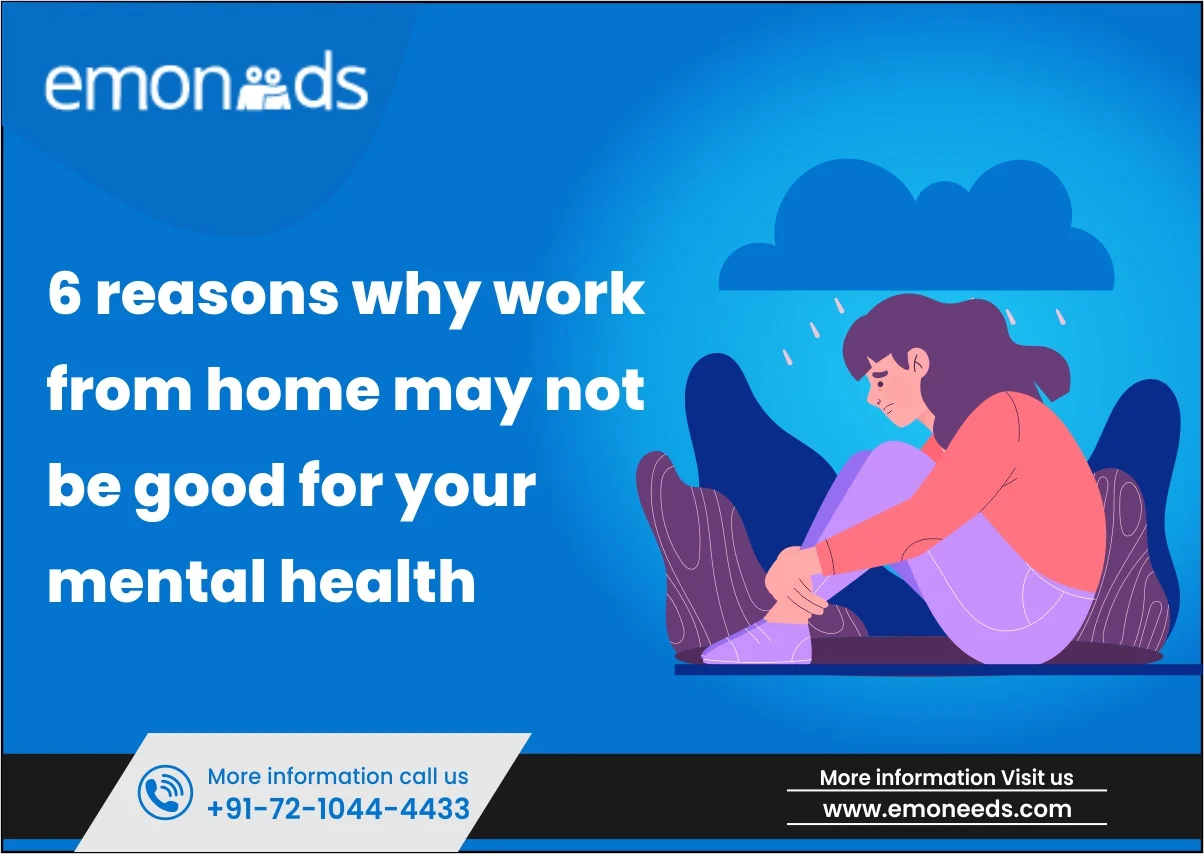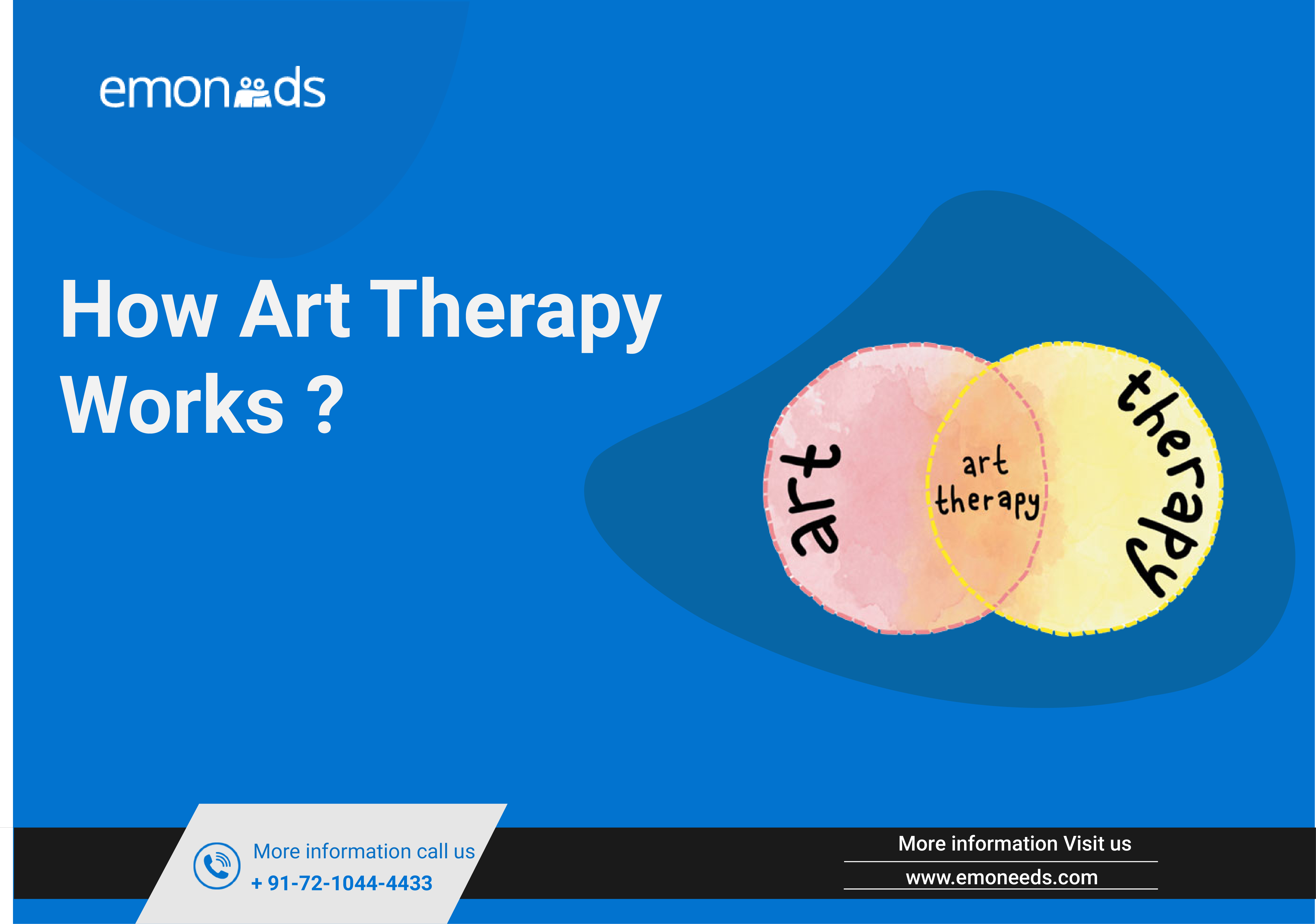
- June 30, 2023
- Saloni Kabra
- 0
Living with a mental health condition is a complex and dynamic journey, marked by both moments of progress and periods of challenge. We may find ourselves riding the waves of stability, only to encounter setbacks or relapses that can leave us feeling disheartened and unsure of how to regain our footing. However, there is hope. By developing a thoughtful and personalized relapse prevention plan, you can cultivate the resilience and strength needed to stay on track and navigate the obstacles that arise along the way.
In this blog, we are here to accompany you on this journey, providing guidance and insights to empower you in creating a relapse prevention plan that is tailored to your unique needs. We aim to equip you with the tools and strategies necessary to maintain your mental health and well-being and to remind you that you are not alone in this process.
Through Emoneeds, we offer daily support to individuals with chronic mental health conditions, aiming to prevent relapses and reduce the need for hospitalization. We provide ongoing access to online therapy, Cognitive Rehabilitation Therapy (CRT), Social Skills Therapy (SST), and medication management. Whether you are dealing with anxiety disorders, mood disorders, psychosis, or other mental health concerns, our dedicated team is here to guide you every step of the way.
In this blog, we will draw upon our expertise and experience to provide valuable insights and practical steps for creating a relapse prevention plan. We believe that by combining the knowledge and strategies shared in this blog with the comprehensive support available through Emoneeds, you can maximize your chances of maintaining stability and achieving your full potential.
Table of Contents
ToggleUnderstanding Relapse
Understanding Relapse: Before we dive into the details of creating a relapse prevention plan, it’s important to develop a comprehensive understanding of what relapse entails within the context of mental health. Relapse refers to the unfortunate occurrence of a return or worsening of symptoms after a period of improvement or stability. It can manifest itself in various ways, unique to each individual’s experience, ranging from a brief setback to a more prolonged and intense recurrence of symptoms.
To effectively prevent relapse, it becomes crucial to recognize the warning signs and triggers that may precede its onset. By attuning ourselves to these indicators, we can proactively address them and intervene before they escalate into a full relapse. While the specific warning signs and triggers may vary from person to person, some common examples include changes in sleep patterns, increased anxiety or irritability, withdrawal from social interactions, difficulty concentrating, or a decrease in self-care practices. By being attentive to these early red flags, we can take necessary steps to prevent relapse and maintain our mental well-being.
It’s important to note that relapse is not a reflection of personal failure or weakness. Instead, it is often a natural part of the recovery process, highlighting the ongoing nature of mental health management. Relapse should be viewed as an opportunity for growth and learning, where we can further understand our individual triggers and develop effective coping strategies to navigate future challenges. By adopting a proactive and compassionate mindset, we can empower ourselves to respond to the signs of relapse with resilience and determination.
Assessing Personal Risk Factors
To build a strong foundation for your relapse prevention plan, it is essential to take a comprehensive look at your personal risk factors. This self-reflection allows you to gain a deeper understanding of the specific challenges and vulnerabilities that may impact your mental well-being. By identifying and acknowledging these risk factors, you can proactively address them and tailor your prevention strategies accordingly. Here are some key steps to help you assess your personal risk factors:
- Reflect on Stress Levels: Consider the stressors in your life, both external and internal. Identify the sources of stress that may trigger or exacerbate your symptoms. These stressors can be related to work, relationships, financial concerns, or other life events.
- Evaluate Support Systems: Take stock of your support networks, including family, friends, therapists, and support groups. Assess the quality and availability of support in your life. Are there any gaps or areas where you feel unsupported? Conversely, identify the individuals and resources that provide you with a strong support system.
- Examine Substance Use: If substance use has been a part of your mental health journey, honestly assess its impact on your well-being. Consider whether substances have played a role in past relapses or have the potential to interfere with your recovery. Acknowledging the connection between substance use and mental health is crucial in creating an effective relapse prevention plan.
- Identify Negative Coping Mechanisms: Take a close look at your coping mechanisms and behaviors during times of stress or distress. Are there any patterns of behavior that tend to worsen your mental health symptoms? These may include excessive alcohol consumption, emotional eating, self-isolation, or engaging in self-harm. Recognizing these negative coping mechanisms empowers you to seek healthier alternatives.
- Consider Past Triggers: Reflect on past experiences or situations that have triggered relapses or setbacks. These triggers could be specific events, environments, or even certain thought patterns. By identifying these triggers, you can develop strategies to manage and navigate similar situations in the future.
Remember, this assessment is an opportunity for self-reflection and self-awareness. Be honest with yourself and approach it without judgment or self-criticism. The goal is to gain clarity on your personal risk factors so that you can develop targeted strategies in your relapse prevention plan.
Identifying Protective Factors
Protective factors act as shields against relapse, helping you maintain stability and well-being. These factors include a supportive social network, healthy coping mechanisms, self-care practices, and positive lifestyle choices. Take stock of the protective factors already present in your life, and consider strategies to further enhance and strengthen them. Engaging in activities that bring you joy, cultivating healthy relationships, and practicing self-compassion can all contribute to building resilience.
Developing a Relapse Prevention Plan
Now that you have a clearer understanding of your risk factors and protective factors, it’s time to develop your relapse prevention plan. This plan will serve as your roadmap, guiding you through challenging times and helping you regain control. Start by setting specific goals and objectives for your recovery. These goals should be realistic, measurable, and tailored to your unique circumstances. Breaking them down into smaller, manageable steps can make them more attainable.
Next, focus on identifying strategies for managing triggers and cravings. Recognize the situations, thoughts, or emotions that tend to lead to relapse, and brainstorm alternative ways to cope with them. This might involve practicing relaxation techniques, engaging in physical activity, or seeking support from loved ones or support groups. Experiment with different techniques and find what works best for you.
Healthy coping mechanisms and alternative behaviors play a vital role in maintaining your mental health. Explore activities that bring you peace, joy, and fulfillment. These might include creative outlets, hobbies, mindfulness practices, or journaling. By incorporating these activities into your daily routine, you can create a solid foundation for emotional well-being.
Building a support network is essential for successful relapse prevention. Reach out to trusted friends, family members, or professionals who can offer guidance, encouragement, and accountability. Consider seeking professional help, such as therapy or medication management, if necessary. Remember, reaching out for support is a sign of strength, not weakness.
Lastly, prepare an emergency plan for high-risk situations. Identify the warning signs that indicate an imminent relapse and develop strategies to manage crises effectively. This might involve creating a list of emergency contacts, developing a crisis management toolkit, or familiarizing yourself with available mental health resources in your community.
Implementing the Plan
Creating a relapse prevention plan is just the first step; implementing it consistently is where the real work begins. Stay committed to your plan and hold yourself accountable. Track your progress, regularly review your goals, and make adjustments as needed. Maintain open communication with your support network, sharing your challenges and victories along the way. Remember, recovery is not linear, and setbacks may occur. Be gentle with yourself and remember that each day is an opportunity for growth and progress.
Seeking Professional Help
While a relapse prevention plan can be a powerful tool, it’s important to recognize when professional help is needed. Mental health professionals are trained to provide guidance, support, and evidence-based interventions. If you find yourself struggling despite your best efforts, do not hesitate to reach out for professional assistance. Seeking help is a courageous step toward your well-being.
Maintaining Long-Term Recovery
Creating a relapse prevention plan is not a one-time task; it requires ongoing maintenance and self-reflection. Regularly assess your progress, adjust your strategies as needed, and celebrate your achievements. Prioritize self-care, practice self-compassion, and nurture your overall well-being. Remember, you have the strength within you to overcome challenges and live a fulfilling life.
Conclusion
Crafting a relapse prevention plan is a valuable investment in your mental health and well-being. By understanding your personal risk factors, enhancing protective factors, and developing a comprehensive plan, you can empower yourself to stay on track with your recovery journey. Remember that you are not alone in this process. Reach out for support when needed, and embrace the power of resilience. With your relapse prevention plan as your guide, you can navigate obstacles and achieve lasting stability, happiness, and fulfillment in your life.
At Emoneeds, our team of expert psychiatrists and clinical psychologists is dedicated to providing holistic, evidence-based care to help you prevent relapse and maintain your well-being. With our personalized approach and comprehensive range of services, including online therapy, cognitive rehabilitation therapy, and medication management, we can tailor a treatment plan that suits your unique needs.
Don’t hesitate to take the first step towards creating a relapse prevention plan that works for you. Visit our website or reach out to us today to learn more about how Emoneeds can support you on your path to mental wellness. Together, let’s embrace the power of prevention and cultivate a future filled with resilience, strength, and fulfillment.



